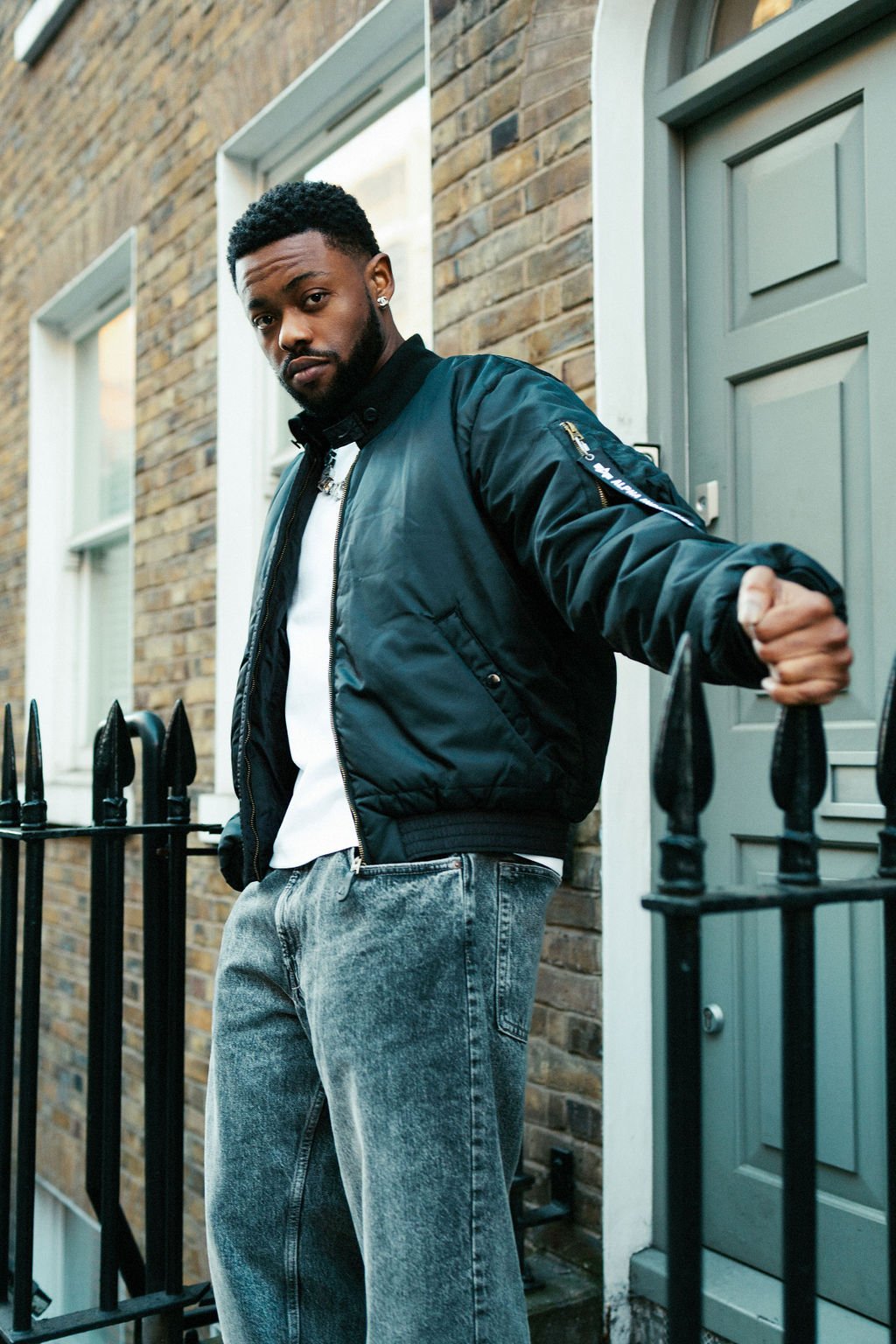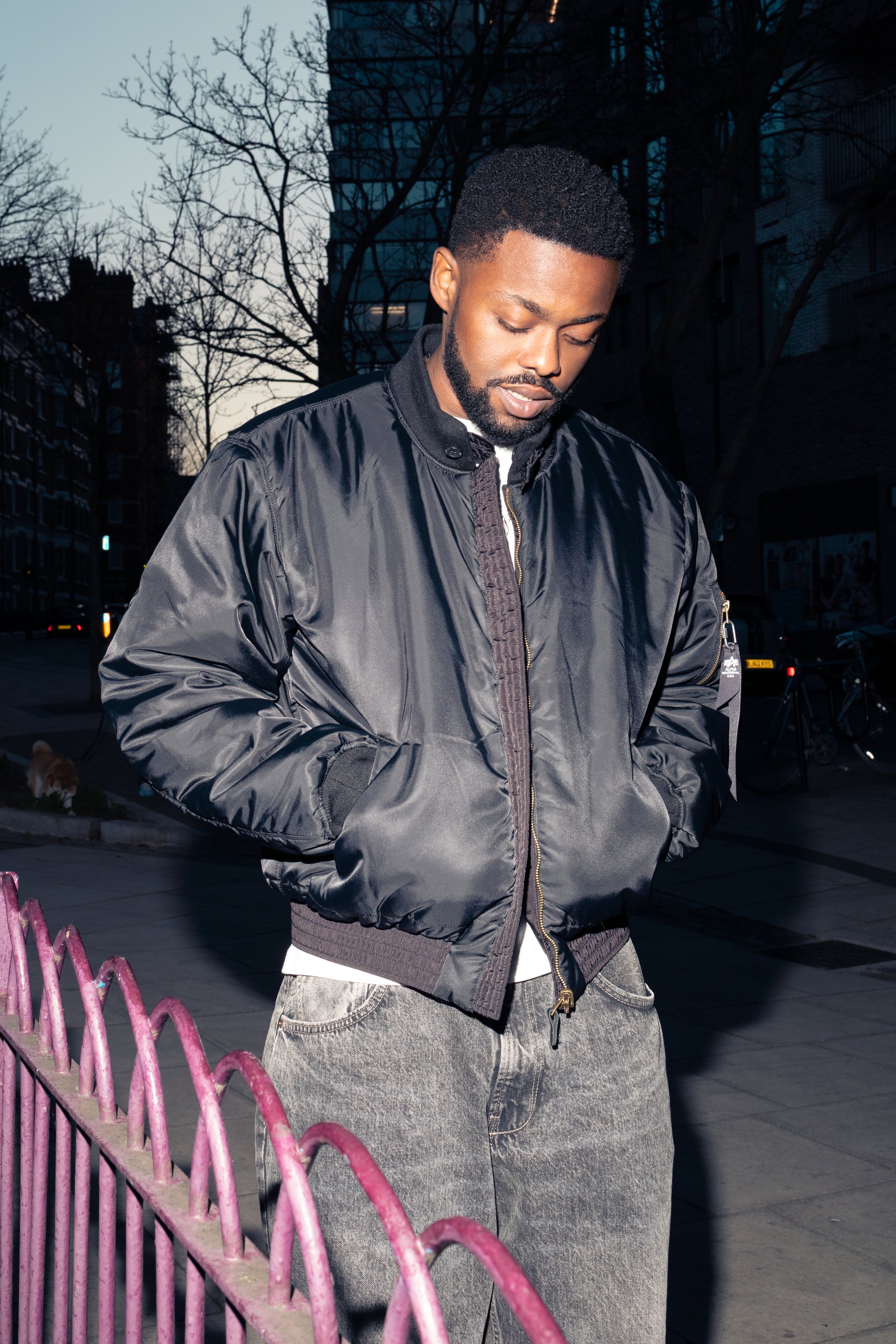
INTERVIEW:LOJAY
From penning his first lyrics at the age of 10 to gracing stages alongside icons like Chris Brown, Nigerian artist Lojay has carved a space for himself through authenticity, resilience, and soulful storytelling. In this intimate conversation with Tirade World, Lojay opens up about his humble beginnings, creative process, spiritual journey, and the unwavering pursuit of music that saved him.
Interview BY Gracey Mae
IMAGES BY YOMI KADEJO

If I sing to you, “I got money, baby,” what does that phrase mean to you?
LOJAY: It means you got money now...
Think harder.
LOJAY: Wait! That reminds me of something I wrote when I was a kid. It was probably the first time I ever wrote a song in my life. What? How do you even know about that? You're on some Nardwuar shit.
[laughs] So… you wrote your first song at 10?
LOJAY: I attempted to write a song at 10, but I flopped horribly. I wrote it on a piece of paper, then balled it up and threw it in the gutter. I told myself that music was not for me.
That was until you were 13, when you started rapping after somebody challenged you...
LOJAY: It was more curiosity than a challenge. He said, "I heard you make music. Is it true?" I was curious to know who told him that. He never said. Till today, I don't know who told him.
So that’s how your music career started at this tender age?
LOJAY: Yeah. I remember we went to Samklef’s studio,it was crazy!
Was this before or after Dkoy?
LOJAY: It was the inception of Dkoy. Initially, we rapped in class, then we decided to hop into the studio. I still remember how the room smelt. It's nostalgic. I remember feeling like I was meant to be there. At that time, I was just a thirteen-year-old kid, unsure about the direction of his life. Then I walked into this place and time just started moving faster.
At this point, was Samklef pre or post Wizkid?
LOJAY: This was pre-Wiz. We worked with him for about a year. I remember one day, he played us the video of ‘Molowo Noni’ before it came out. D'Prince and Ice Prince were the stars. Wizkid wasn’t as big then. He wasn't the Wiz we all know and love today.
From that moment to working with Wiz! It’s really been a journey.
LOJAY: It’s wild, I can’t even lie. Music strengthened my faith. I'm not religious, but I'm very spiritual. I used to believe everything is nothing and we’ll return to nothing, but the journey of discovering myself, performing with Chris Brown—it changed that. I had to live it to believe there’s something deeper at play. You can’t experience all I’ve been through and not believe there’s a greater power.
On the topic of Chris Brown, congrats! Where were you when you found out you were both up for a Grammy?
LOJAY: I was in the studio. Coincidentally, I was in the studio the first time Chris sent me the song ["Sensational"]. Shoutout to all the award platforms, but personally, I don’t attach myself to awards. That day, I knew the nominations were being announced, but I didn’t know how it would turn out. Then I heard noise downstairs—my manager ran up shouting, “You’re Grammy-nominated!” I told him to calm down but I was hyped. I called my mum and she started praying. She was so emotional, crying, talking me through my journey from her perspective. That made me cry too. People don’t understand how hard it is to do all this independently. I was the only fully independent artist in that entire category. Sharing that moment with my mum made the Grammys special.
Having a supportive family is everything. Tell us what it was like growing up.
LOJAY: One of the best parts of my journey is how diverse it is. I was born in Surulere. My dad lived in an annex, married my mum, had me, and then moved to Ikorodu because it was cheaper. We had nothing. No furniture. Then my younger brother, Suchi, came along, he’s a stylist now.
I watched my dad struggle, and then slowly start to rise. He's a hard worker. That work ethic defines our family. I wasn’t great in school, not because I didn’t love learning, I was obsessed, but the Nigerian education system just didn’t engage me.
We lived in Ikorodu, but I schooled in Ikeja, a two-hour journey each way. Then I switched to Nigerian Turkish International College. Later, I went to boarding school.
As my dad started reaping the rewards of his hustle, it was time for university. I wanted to stay in Nigeria for music, but he insisted on a credible degree, so I went to the UK.

"It’s not about charts or clout. Music is healing — it’s therapeutic. If it’s not coming from somewhere genuine, everybody can tell."
That moment really unlocked your purpose.
LOJAY: Yeah. I had been holding back. But after that, I knew I couldn’t make music for clout. One time, I tried that with ‘Over the Bar’ and I hated it. Coming back to Nigeria, people wanted lamba, up-tempo stuff. But I wasn’t being true to myself.
Music is healing. It doesn’t have to be slow or sad, but it has to come from somewhere real. You can hear when someone’s chasing a trend. I watched Wizkid at Afro Republik in 2018. I cried. I told God, “I don’t know how, but I’ll perform here someday.” And I did. That’s grace.
You mentioned not recording unless you know how you feel. How do you figure that out? Therapy? Journaling?
LOJAY: Self-awareness. Always checking in with myself. I haven’t done extensive therapy, but honesty helps. The more honest I am, the better I understand myself. That gives me more to say through music.
I want to come from a deeper place, not just straightforward love songs. There’s trust, conflict, growth. My writing evolves as I evolve. The better I know myself, the better the music becomes.
What did you study?
LOJAY: Initially Civil Engineering at Leeds, but I quickly realised I wasn’t a civil engineer! I switched to University of Portsmouth. My parents weren’t happy about the switch, so I worked hard to make them proud. And I did.
Amidst your studies, how did you reconnect with music?
LOJAY: I got a studio. That was the beginning of the end for academics. At first, I was just playing around with beats. Every day, after school, I’d experiment with production. Then I said, “Let me just record.”
Eventually, I failed my second year. I had to resit—first time that had ever happened. That year, I focused on school.
Then came the party and the conversation that changed it all…
LOJAY: Yeah. Thirteen of us at a house party. Everyone was drunk except one friend. She pulled me aside and said, “Out of all of us, I feel like your star shines the brightest.” That conversation changed everything. I didn’t sleep. I wrote a plan—steps to start and maintain a music career. A week later, I recorded my first tracks. I dropped ‘Simple Matter’ in 2016 on SoundCloud. ATG produced it. He used to charge me £250 per session. Eventually, I just bought the equipment.
Sounds like the new project is going to be different.
It is. I still listen back, but I try not to overplay it. When I knew it was ready, I told myself, “Don’t add anything else or you’ll ruin it.”
Is there a name?
LOJAY: Yes, it’s on my body. It’s a message to my fans. Initially, I wanted it to be all about me, but now it’s full of beautiful stories people can connect with.
My creative director and I want people to listen and smile. We want people to want to be in love again. Vulnerable, cheesy love songs are missing in Afrobeats. But love is our foundation. I want to bring that back.
Is Lojay in love?
LOJAY: Right now, I’m in an interesting space. I’m open to love, but I only want to fall once. I’m very careful. Compatibility matters more than looks. I’m doing a lot of inner work because when I find her, I want to be ready.

Your new song ‘Mwah’ with Odeal feels full of love. How did that collab happen?
LOJAY: My manager set up the session. I had just heard Odeal’s song and was already thinking of working with him. We booked the studio for Christmas Day.
Christmas Day?!
LOJAY: Yeah, wild right? I’ve spent three crossovers in the studio. This is the first time in four years that I came to London without my speakers or mic—intentionally. I want to clear my head before starting the next album.
That night, Loudaa played the instrumental. I stood up and sang the entire chorus. Odeal came through with the verses. It was magic. That song had to be on this album.
We can’t wait for Tirade World readers to hear it. Any final words?
LOJAY: The world is going through a lot right now. I know for a fact that everybody needs a support system to just keep going. More than ever, as humans, we just need our friends, we need our family, we need to give love, we need to share love, we need to show love. I know it sounds cliche but we really need it.






